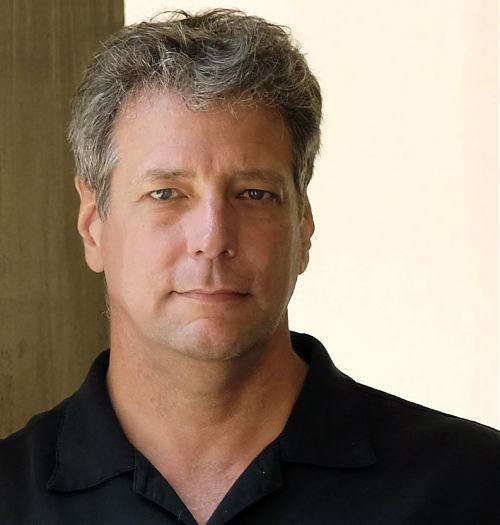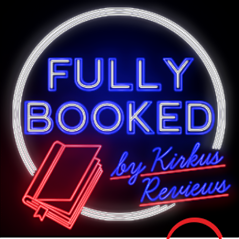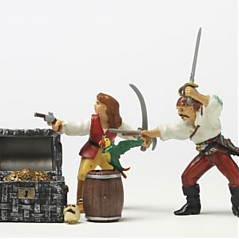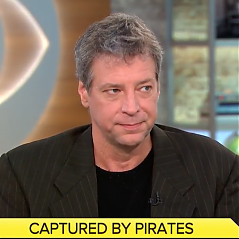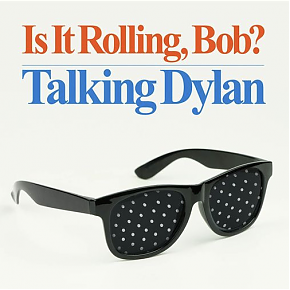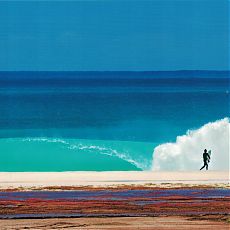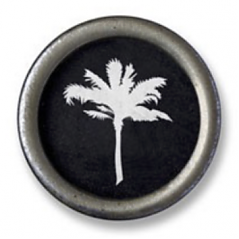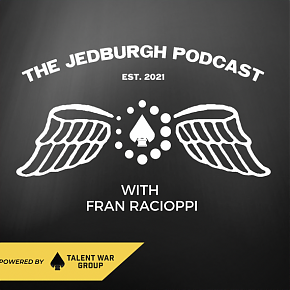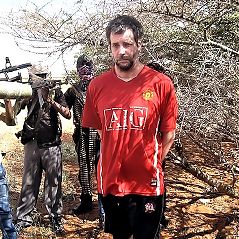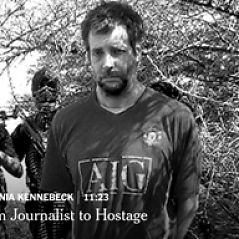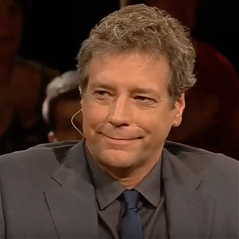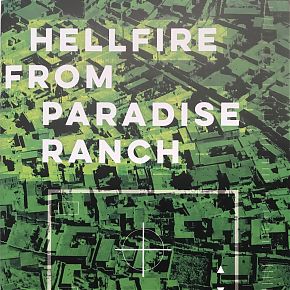Denis Johnson, Poet of the Fallen World
How a San Francisco theater troupe turned Johnson into a playwright

February 2003
“I’m kinda like Ozzy Osbourne,” says Denis Johnson in a distracted moment, explaining that he might not remember to call me back. “My wife was just telling me that.”
He means he’s disorganized. Fourteen years of substance abuse may have affected the writer’s mind, so he relies, like Ozzy, on a practical wife to keep him grounded. “Cindy handles all the finances. That’s crucial,” he says. Last December he went with her to cash one of his own royalty checks at the bank. “She showed the lady some ID, and I said, ‘Shouldn’t I show her my ID?’ And she said, ‘You don’t have an account here.’”
Johnson looks nothing like Ozzy Osbourne. He’s a gentle, affable, easy-smiling man with a thickening middle and a beard. He dresses, by his own admission, like “someone from a TV news team” — plain shirts, worn jeans, and running shoes. He’s open, self-deprecating, and kind. Not much in his manner has the edginess of Fuckhead, the semi-autobiographical wandering junkie in Jesus’ Son, which more than any other book has made Johnson a famous author. That collection of grim, brief stories about addicted drifters in the ’70s won him a cult following after it was published in 1992; more fans followed when it became a successful indie film in 2000 (starring Billy Crudup). It also led, not quite indirectly, to his new career as a playwright.
His latest play, Soul of a Whore, opens at Intersection for the Arts in San Francisco this week. “He’s so naked and honest,” says Sean San José, an actor performing in the show. “That’s the great thing about Denis and any of the good writers, is that you feel the big punch in your stomach when you read ‘em.”
Three and a half years ago, the theater troupe San José belongs to, Campo Santo, staged two stories from Jesus’ Son, in collaboration with another company called Word for Word. The show was not only a local hit, but also a revelation for Johnson, who flew out to San Francisco from Idaho, where he lives half the year (the other half in Arizona). He couldn’t get over the fact that all these people had put in all this work to perform the stories just as he’d written them. “To be so alone [as a writer], working with these characters and what they say, and then to come and see these people who are devoting even more energy, actually, to the process — it’s like finding your tribe,” says Johnson. “I thought I was the only one on the planet who felt these characters were important.”
Campo Santo has world-premiered two of his full-length plays since then, and Soul of a Whore will round out a triptych about the fucked-up Cassandra family. The theme of the play is capital punishment; a Cassandra woman sits on death row for killing her infant daughter. But the show teems with colorful images and people: It detours through a Greyhound-station demimonde of ex-cons, prophesying demons, a hypocritical preacher, a lovely Texan stripper, and a cross-toting Cassandra son before it arrives at any discussion of the electric chair.
Johnson fans will recognize the cast of characters. Prostitutes and drunkards and petty criminals populate his tales the way they populate the songs of Johnny Cash. Johnson writes with relish about sinners. He still goes to support-group meetings for recovering addicts, and he never gets tired of hearing people’s stories. “I feel very privileged to hear how somebody used to run around stickin’ people up and stealing cars, and now they’re gettin’ their life back together,” he says. “I was in one [group] just a few days ago, and there was this girl who had been clean and sober for 17 days. She got a check for $300, and she told us everything she did with the check — she paid her dad back a hundred dollars, she paid some bills, and then she sent $25 to a cancer hospital for children. I was just so amazed. It was such a beautiful thing. And she’d formerly been a whore. I just love the stories. The stories of the fallen world, they excite us. That’s the interesting stuff.”
§
Playwriting is only the most recent phase in Johnson’s long, shape-shifting career. He started as a poet in 1969, with a collection called The Man Among the Seals. He was 20 and still enrolled at the University of Iowa, where he took classes from Raymond Carver. At 21 he entered his first psych ward for alcohol addiction. Seven or eight years of drug abuse followed — “heroin, alcohol, grass, and any pills that came my way,” he says — along with two periods of aimless, and sometimes homeless, wandering. The stories in Jesus’ Son grew out of these stints as a stray.
While he struggled to get sober in 1978, Johnson says, he had “a strong experience of the presence of God” in Phoenix. The epiphany is still hard for him to explain, beyond a disavowal (“There was no talking”) and a vague description of color (“It was kind of — blue”). But a number of passages in Jesus’ Son seem to derive from it, like this description by Fuckhead of tiny cactus flowers blooming in Phoenix:
To catch the bus home each day I walked through a vacant lot, and sometimes I’d run right up on one — one small orange flower that looked as if it had fallen down here from Andromeda, surrounded by a part of the world cast mainly in eleven hundred shades of brown, under a sky whose blueness seemed to get lost in its own distances. Dizzy, enchanted — I’d have felt the same if I’d been walking along and run into an elf out here sitting in a little chair. The desert days were already burning, but nothing could stifle those flowers.
This paragraph is typical. None of Johnson’s work reads like “Christian” writing. He leaves dogma in the background, and seems to insist on an absolute freedom of ideas, so his darkest bits can be as bleak or violent or blasphemous as the most committed nihilist’s. (The final scene in Soul of a Whore features a man in a clown suit hanging from a cross.) “I’m sure there are many Christians who would assure me I’m goin’ to hell,” Johnson says, and in fact one of Campo Santo’s ad cards for the play came back to the office with a message written over the profane title: “Please stop writing me dirty letters or I will sue you.”
In any case, the epiphany in Phoenix had been a missing element in Johnson’s fight to get sober. He controlled his addictions later the same year, and concentrated on a novel he’d started in college. That book, Angels, follows a single mother drifting around the country with an erratic tattooed stranger. It was published in 1983, winning a Sue Kaufman Prize for First Fiction and earning warm reviews from the likes of Philip Roth and Don DeLillo. (Roth called it “a small masterpiece.”) In this period, he also produced two books of poetry, The Incognito Lounge in 1982 and The Veil in 1987, as well as two more novels — Fiskadoro, a weird vision of a post-nuclear future in the Caribbean (1985), and The Stars at Noon, about an American woman in Nicaragua (1986).
By most of the usual indicators, Johnson’s career was humming along. But he seems to feed on bad luck, so it’s no surprise that the strange process of publishing Jesus’ Son started with a bungled trip to the Philippines for Esquire in 1988. A new stage of his career should have been opening up — adventure journalism — but Johnson came down with malaria and felt too wrecked on his return home to finish the piece. “And it was just by horrible coincidence that my second wife was divorcing me,” he says, “so I had no place to stay.”
He recovered in the back room of a friend’s house in the hills above Anchor Bay, near Mendocino. For money, he sent his agent a batch of stark, semi-autobiographical lowlife sketches from his days as an addict. “I almost told him, ‘Don’t send ‘em to The New Yorker,’ because I figured they would never take ‘em,” he says. “I was pissed off in advance.” But Johnson’s former editor at Knopf, Robert Gottlieb, had just taken over as editor of The New Yorker. “He was ready to make some changes in the magazine, so he thought it’d be a laugh to publish some of these vulgar stories.”
The New Yorker bought four. The Paris Review and Esquire bought a few others. Johnson still thought the pieces were too short and too bizarre for a story collection until he hired an accountant to straighten out his finances and found himself in debt to the IRS for about $10,000. Strapped, again, for cash, he pitched a collection to his editor at the time, Jonathan Galassi, at Farrar, Straus & Giroux. “I don’t know if I told him it was for the IRS,” Johnson says, “but I asked for that much of an advance.”
The result was a junkie-thin book, titled Jesus’ Son after a line from Lou Reed’s “Heroin.” Fuckhead, the narrator, tells 11 gaunt stories about gunshot wounds, abortion, drug-wrecked lives, and the possibility of redemption in a cool, hard-boiled prose that has impressed everyone from urban hipsters like the actors in Campo Santo to establishment critics like Jack Miles, who wrote, in The Atlantic Monthly, “Denis Johnson’s path as a writer — from poetry to the novel to the short story — is as untypical as his vision, but Jesus’ Son may eventually be read not just as a moment in his evolution but as a distinctive turn in the history of the form.”
§
During rehearsals for Soul of a Whore, in January of this year, Johnson hangs around Campo Santo’s black-box theater as if he’s found a second home. The ethic here is rough-edged, post-hippie and urban. Campo Santo resides in a Mission District building that belongs to Intersection for the Arts, a 38-year-old outfit devoted to theater, jazz, literature, and graphic arts. Deborah Cullinan, Intersection’s artistic director, has tattoos on her pale arms and wears secondhand dresses. She carries her infant son into the room, and Johnson gives her parenting advice. (He has three children.) “Don’t send him to school,” he says. “That’s what fucked me up.”
“That’s right, you home-schooled your kids, didn’t you?” says Cullinan.
“Yeah. It’s the best thing. Public school’s like a prison.” (Johnson published a Newsweek article in favor of home-schooling a few years back.)
Hovering nearby is Sean San José, a lean, 30-odd-year-old actor with penetrating black eyes and a Latino curl in his voice. He’s been a devoted advocate of Johnson’s writing since somebody gave him Angels to read, years ago, and he remembers the first time he called Johnson at home to invite him out to San Francisco.
“We got him on the phone, and I said, ‘Would you come out? We’re gonna do some stories of yours.’ He said, ‘Yeah, that sounds great. Oh — wait. I’m lookin’ at a note here in front of the phone that says, Do not make agreements on the phone. I can’t do it, I’m sorry.’” San José laughs.
“It’s true,” says Johnson. “There’s a big sign by the phone that says, ‘No agreements over the telephone.’”
“And I think that was probably in Cindy Lee’s handwriting,” says San José.
Johnson gives his third wife credit for creating the structure at home that allows him to work so freely. He says he dictated the first two Cassandra plays into a tape recorder while he sat in the bathtub. “I would hear people talking, and I’d get down what they said. In the tub.” Soul of a Whore was different: For one thing, he wrote it in blank verse. “I’d actually go to this coffee shop in Austin, where I was living, and I’d get this Writer’s Chai — it’s called Writer’s Chai,” laughs Johnson. “It was in a bookstore, like in a Borders Books, and I’d get the Writer’s Chai —”
“It works!” says San José.
“That’s right. I should tell ’em that.”
“You could advertise! Jesus!” San José laughs.
“So anyway,” says Johnson, “the process was like writing a poem, rather than writing prose.”
Soul of a Whore doesn’t sound like a poem onstage: The metrical structure stays in the background, a bit like Johnson’s religion. Versifying just compresses the language, forcing the actors to think hard about the rhythm of each line. A Greyhound clerk in the play says, “All I know/ Is what the TV wants for me to know,/ Like all Americans everywhere. That girl/ Was sort of innocent, too — I mean, the years/ Of booze and dope had bleached her brain to white.” When Johnson reads this passage aloud, no line breaks are noticeable, but the language rolls with a dangerous cadence. He says the trick to writing a play in verse is never to fall for the idea that you’re writing poetry: “Because you’re not. You’re writing dialogue.”
His artistic career may seem to have come full circle — from verse to novels to short stories to plays, and then back to verse — but the truth is that Johnson still works in every form. He’s just finished a story, and he’s at work on a novel, too. But he likes playwriting because, he says, “It’s easier.” Novels ask a writer to be set designer, prop master, playwright, actor, and director all in one. Plays aren’t as complicated.
“To write,” I suggest. “Not to produce.”
Johnson smiles. Then he compares the process of producing a play to driving in an armed jeep through the countryside of Liberia, something he’s experienced. After that first thwarted Esquire assignment to the Philippines in 1988, he still managed a side career in adventure journalism, and for about 10 years he explored some of the most violent places on Earth, including Liberia during its early civil war and Iraq during Desert Storm. He figured writing plays would be a sort of vacation. He was wrong.
“There was a production of Shoppers in New York [last year],” he says, meaning his 2002 play Shoppers Carried by Escalators Into the Flames, “and one of the actors was reading this [article] I wrote about Liberia. He said, ‘This is unbelievable, what you went through.’ And I honestly told him, ‘You know what? It was not quite as bad as what we went through here. A little less than this. Some of the most hellacious stuff that I’ve gone through has been around theater productions. It’s like jumpin’ off into a waterfall.”
But he likes that, right?
“Well, I wouldn’t go back to Iraq now. Somebody’d chop my head off, I’m sure,” he says. “I’m just too old — and yeah, I like what I’m doing.”
Michael Scott Moore
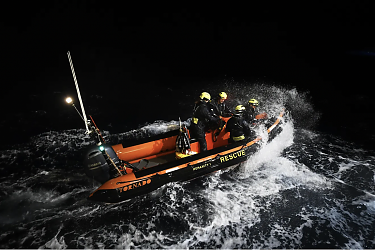
Rafts of the Medusa
Why every day on the Mediterranean is a new scandal for Europe. For both Foreign Policy and Die Zeit.
California’s Attempt at Land Reparations
How land seized from a Black family 100 years ago may be returned. The Bruce’s Beach story from a hometown angle, for The New Yorker
Day of the Oprichnik, 16 Years Later
The novelist Sorokin, the president Putin, his man Dugin, and the war in Ukraine. For n + 1.
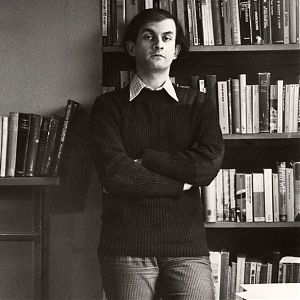
The Rushdie Narrative
Knife and the crumbling ground beneath free speech
There Must Be Some Way Out of Here
An essay on Bob Dylan, “All Along the Watchtower,” and Somali pirate captivity.
That Mystic Shit
The life of Lou Reed in two biographies

Cambodian Seafarers Talk About Pirates
Mike visits Cambodia for The New Yorker to talk about a harrowing shared experience in Somalia
The Muslim Burial
Cambodian hostages remember digging a grave for one of their own. A sequel chapter to The Desert and the Sea
The Real Pirates of the Caribbean
Adventure journalism in Southern California. A travel essay for The Paris Review.

Antifa Dust
An essay on anti-fascism in Europe and the U.S., for the Los Angeles Review of Books
Was Hitler a Man of the Left?
A book that helped Republicans in America lose their damn minds.
Ghosts of Dresden
The Allied firebombing of Dresden in 1945 destroyed the baroque center of what Pfc. Kurt Vonnegut called, in a letter home from Germany, “possibly the world’s most beautiful city.”
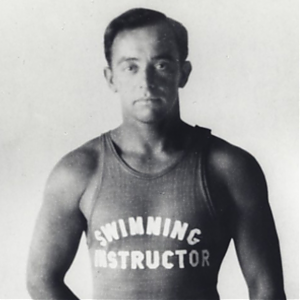
George Freeth, Biographed
The first academic treatment of America’s surf pioneer. Also, was Freeth gay?
It’s Called Soccer
Americans live on what amounts to an enormous island, defended on two shores by the sea, and we’ve evolved a few marsupial traditions that nobody else understands.
Tilting at Turbines (in the Severn River)
The morning was clear and cold, with frost on the church steeple and the cemetery grass. I had a quick English breakfast at a white-cloth table, in my wetsuit, and drove to Newnham, a village on the Severn River in Gloucestershire, parking near the White Hart Inn.

The Curse of El Rojo
I’d packed the car lightly — a bag of clothes, a bag of cassette tapes, a backpack of books, a few essential tools.









